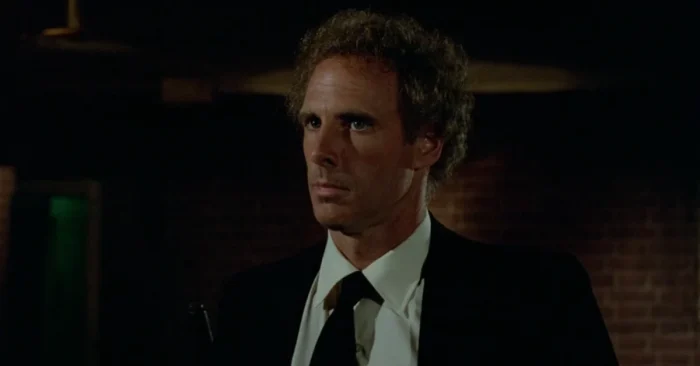Bruce Dern Career and Life Style
Early Life and Education
Bruce Dern was born on June 4, 1936, in Chicago, Illinois, into a well-known and politically influential family. His grandfather, George Dern, served as the Governor of Utah and later as Secretary of War under President Franklin D. Roosevelt. Despite these strong family ties to politics, Bruce followed a different path, choosing the arts over government service. Growing up in a privileged household gave him opportunities, but it also came with expectations to succeed in traditional fields. Dern, however, discovered his passion for storytelling and acting at a young age.
He attended New Trier High School in Winnetka, Illinois, where he excelled in athletics but felt more connected to performing. Later, he enrolled at the University of Pennsylvania before moving to New York City to study acting. There, he joined the prestigious Actors Studio, training under legendary mentors like Elia Kazan and Lee Strasberg, which helped him develop the emotional depth that would define his career.
Breakthrough and Career Highlights
Bruce Dern’s career began in the early 1960s with small roles in television and film. He appeared in Alfred Hitchcock’s Marnie (1964) and gained attention for his performance in the Western Hang ’Em High (1968) alongside Clint Eastwood. His ability to bring intensity to both minor and supporting roles quickly made him stand out. By the 1970s, Dern had become one of Hollywood’s most compelling character actors. His performances in They Shoot Horses, Don’t They? (1969) and The Cowboys (1972) solidified his reputation for portraying complex, sometimes unsettling characters.
In 1978, Dern achieved widespread acclaim for his role in Coming Home, where he starred opposite Jane Fonda and Jon Voight. His portrayal of a traumatized Vietnam War veteran earned him an Academy Award nomination for Best Supporting Actor, proving his ability to balance vulnerability with intensity. This period established him as a versatile performer who could embody villains, heroes, and deeply flawed individuals.
Career Expansion and Resurgence
Through the 1980s and 1990s, Bruce Dern continued to work steadily, appearing in films like Tattoo (1981), Black Sunday (1977), and On the Edge (1986). While not always in leading roles, his presence elevated every project he joined. Known for his authenticity and emotional power, Dern became an actor respected by both audiences and peers. In the 2000s, he experienced a career resurgence, taking on powerful supporting roles in acclaimed films. He appeared in Monster (2003), opposite Charlize Theron, and later in Quentin Tarantino’s Django Unchained (2012). However, his greatest comeback came in Alexander Payne’s Nebraska (2013).
Playing Woody Grant, an aging man chasing a lottery dream, Dern delivered one of the finest performances of his career. The role earned him the Best Actor Award at the Cannes Film Festival and his second Academy Award nomination, this time for Best Actor. The film reminded the world of his unmatched ability to bring honesty and depth to storytelling.
Personal Life and Family
Bruce Dern’s personal life has been filled with both joy and hardship. He has been married three times and is the father of two daughters. With actress Diane Ladd, his second wife, he welcomed actress Laura Dern, who has gone on to become one of the most respected performers of her generation. Tragically, the couple’s first daughter died at just 18 months old, an event that left a lasting impact on Dern’s life. Despite personal challenges, he remained resilient and dedicated to his career. His bond with Laura Dern remains strong, and together they have built a unique Hollywood legacy as a father-daughter duo.
Bruce Dern is also known for his eccentric personality, sharp wit, and dedication to staying authentic. Even in his later years, he emphasizes discipline, fitness, and creative exploration, proving that passion and persistence can sustain a lifelong career.
Net Worth and Recognition
Bruce Dern has an estimated net worth of around $20 million. His income comes from decades of work in film, television, and theater. Over more than six decades, he has appeared in more than 100 films and countless TV shows, becoming one of Hollywood’s most enduring actors. His accolades include Academy Award nominations for Coming Home and Nebraska, along with recognition at the Cannes Film Festival and several lifetime achievement awards.
Critics and audiences alike praise him for his commitment to authenticity, his willingness to embrace complex roles, and his ability to portray both strength and fragility. His recognition goes beyond awards; he is widely regarded as an actor’s actor, admired for his craft, dedication, and refusal to compromise his artistic values.
Conclusion
Bruce Dern’s career is a testament to resilience, artistry, and authenticity. From his early training at the Actors Studio to his unforgettable roles in Coming Home and Nebraska, he has consistently delivered performances filled with emotional truth. His ability to reinvent himself across decades has kept him relevant, admired, and respected in an ever-changing industry. Beyond acting, his legacy continues through his daughter Laura Dern, ensuring that the Dern family remains an important name in Hollywood.
Frequently Asked Questions (FAQs)
What is Bruce Dern best known for?
Bruce Dern is best known for his roles in Coming Home (1978), Nebraska (2013), and The Cowboys (1972).
How many Academy Award nominations has Bruce Dern received?
Bruce Dern has received two Academy Award nominations: Best Supporting Actor for Coming Home and Best Actor for Nebraska.
Who is Bruce Dern’s daughter?
Bruce Dern’s daughter is actress Laura Dern, known for her roles in Jurassic Park, Big Little Lies, and Marriage Story.
What is Bruce Dern’s net worth?
Bruce Dern’s estimated net worth is about $20 million, earned from his long and successful career in Hollywood.
Is Bruce Dern still acting?
Yes, Bruce Dern continues to act actively in films and television, bringing authenticity and depth to every role even in his later years.






